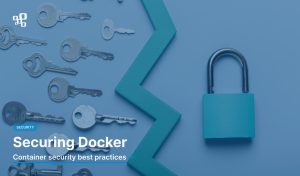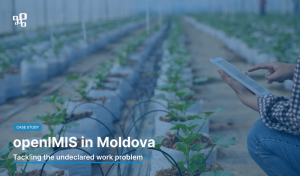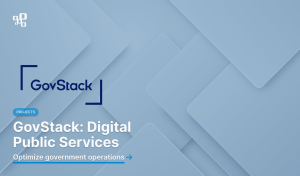Be the best during the recruitment process
Recruitment is one of the best opportunities for the first contact with a potential new employee. This is a process that impacts our professional future life, and that could be connected with a lot of expectations and stress. There are quite a few negative preconceptions associated with the recruitment process, its tempo and complexity. But could it be a positive, valuable experience? In this article, we would like to challenge the common beliefs and share our perspective on the recruitment as a priceless learning encounter. We will also share some details on how the process looks like in our company, and how you can prepare for it.
The recruitment process may differ, depending on company and branch. You will come into contact with various organizational cultures, and each interview will stand out for different reasons. Recruitment process can be divided into several stages, depending on whether you are applying to a software house, an outsourcing agency, an internal project, or one created in cooperation with a client who also wants to have a say in recruitment. Recruitment for purely technical positions has its own distinct requirements, and differs from the one where soft skills such as communication, negotiation, and excellent foreign language skills are essential.
In the case of SolDevelo, we deal with almost all of the above options, except for the agency. However, in general, we can distinguish two main stages that will always appear, if a recruiter pre-selects your application. We invite you to familiarize yourself with all the stages of our recruitment process, which will help you prepare adequately to participate in it:
Stages in our recruitment process

1. Initial call – The first conversation with the recruiter.
Together with the recruiter, you schedule a telephone appointment. Such a conversation usually lasts a maximum of half an hour. Its purpose is to get familiar with each other. During this conversation, formal issues and expectations of both parties are established. At this stage, we introduce the details of your recruitment process (who will be involved, what deadlines we expect you to meet, etc.).
2. Technical interview – Conducted by the Hiring Manager. More than one person on the employer’s side may participate.
At this stage, you primarily talk about your experience. Technical knowledge is tested – there may be tasks for you to perform, based on what you already know and can do yourself. This stage lasts about an hour. At the end, there is a time to ask the project leader some questions. This is to analyze all pieces of information which we gathered in terms of all defined requirements.
Although we try to keep the process short, we know that during these conversations each party should make themselves as memorable as possible. That’s why we make sure that it is carried out properly and in the most comfortable atmosphere for the candidate. Among other reasons, we have recently joined the “Friendly Recruitment Coalition,” which additionally motivates us to keep up the best possible recruitment standards. Thanks to this, each of the people involved in the recruitment process can feel properly taken care of, and each of our Hiring Managers is mindful of this principle and of how often our interviewer is also accompanied by a lot of stress during the interview.
How to prepare for an IT job interview?

In order to reduce your stress to a minimum, we’ve prepared some tips for you:
- Try to relax
First of all, before the interview itself, try to relax in the best way possible for you. It is better not to undertake important conversations just before the interview itself 😉 Remember that although the employer is the one conducting the interview, they also care about hiring you.
- Ensure the right conditions
Second, reserve adequate time and space for the interview. Ideally, you should give yourself half an hour before the interview to turn your mind off your daily business and prepare. We’d appreciate it, if you visited our website or social media, and got a little familiar with what we do. Remember that this shows your commitment to the process and your professional approach to meetings.
- Prepare questions and rethink your expectations
Another very important thing is to prepare for the interview and determine the issue you care about most. Usually, during the initial call we ask about financial expectations, availability for work, the form of employment, the form of work (remote, stationary), technologies that interest you, etc. These are issues that, of course, we can negotiate at the end of the process, but we want to have an initial idea of a person’s expectations.
- Prepare your CV
We also recommend that you prepare and update your resume before sending in your application. Ideally, it should be written in English, legible and understandable to the recruiter. You don’t need to spread your entire experience over several pages, but let it be a succinct summary of your most important experiences, education and known technologies in which you work on a daily basis.
- Ask questions
Moreover, we greatly appreciate people who are not afraid to ask questions. We are there for you, just as much as you are there for us. We are of the opinion that both parties should see if they are a good fit for each other in order to make the cooperation long-term and successful.
“Savoir-vivre” of a job interview

At an interview with us, we do not require a white shirt and black pants, especially since these are often online interviews, so appearance does not matter much. But remember that it will be nice to us if, however, you do not show up in a sweatshirt, smoking an electronic cigarette, because our body language and behavior also says a lot about ourselves and about what kind of attitude we have towards the other person. During such a meeting, in a sense, we are selling both our services and ourselves.
Last but not least, there is something that has recently made quite a splash on the pages when it comes to recruitment in IT companies. Namely, it is about so-called “ghosting”, or “disappearing candidates” who cut off contact with the recruiter during the process without giving any reason. We are human and understand that unexpected situations sometimes occur, but we certainly don’t appreciate it when someone doesn’t respect our time and doesn’t show up for an agreed interview or is significantly late for it, with no prior explanation. If you change your mind for some reason and you resign from the participation in the recruitment, just inform us about it.
In conclusion, remember that a recruitment interview is not an interrogation, more of a meeting for business purposes, and if the two parties meet at the same point, they establish cooperation. Therefore, the more you treat it as such a meeting and not an exam, the better you will perform.
If you’re interested in working with us, check our vacant career positions!












